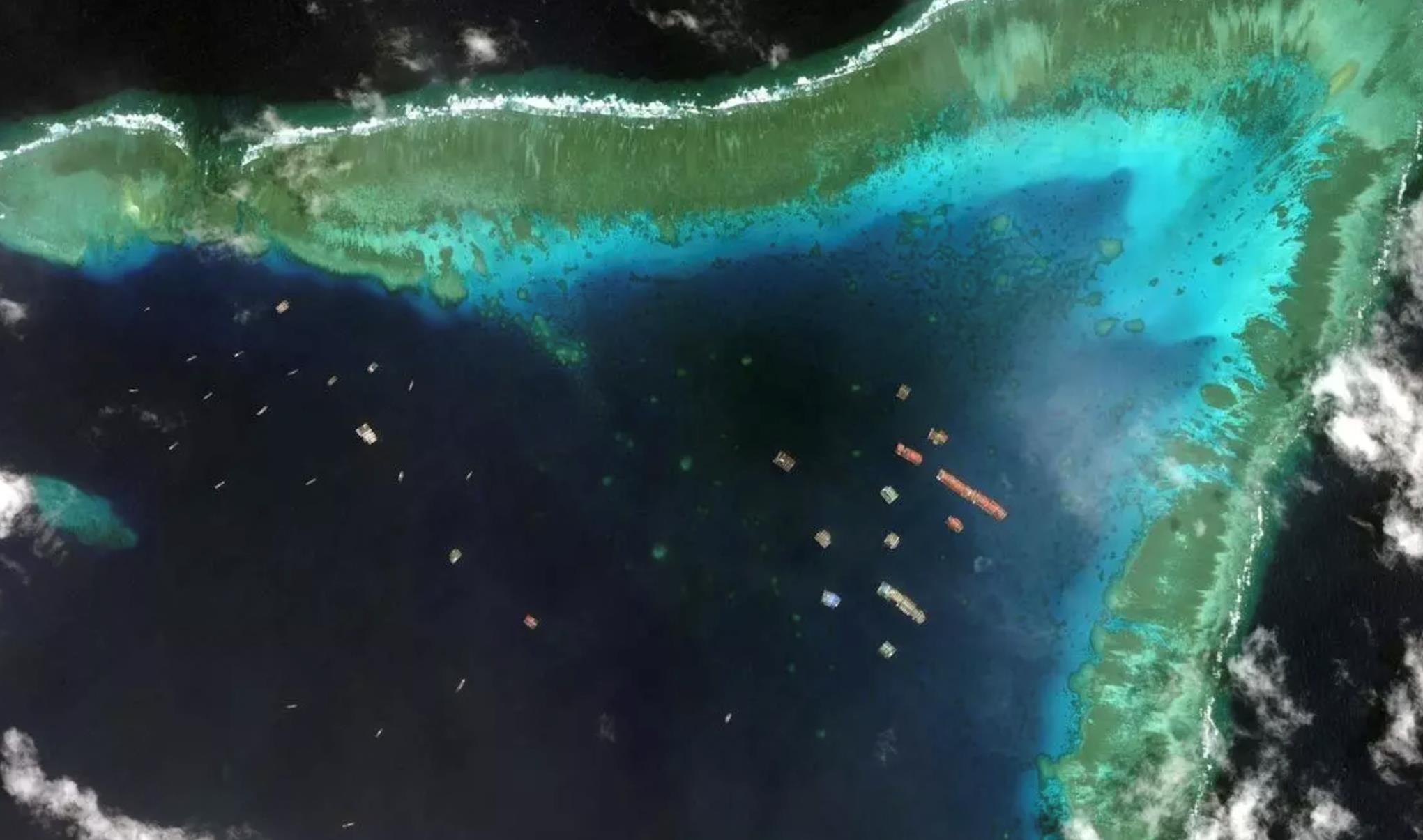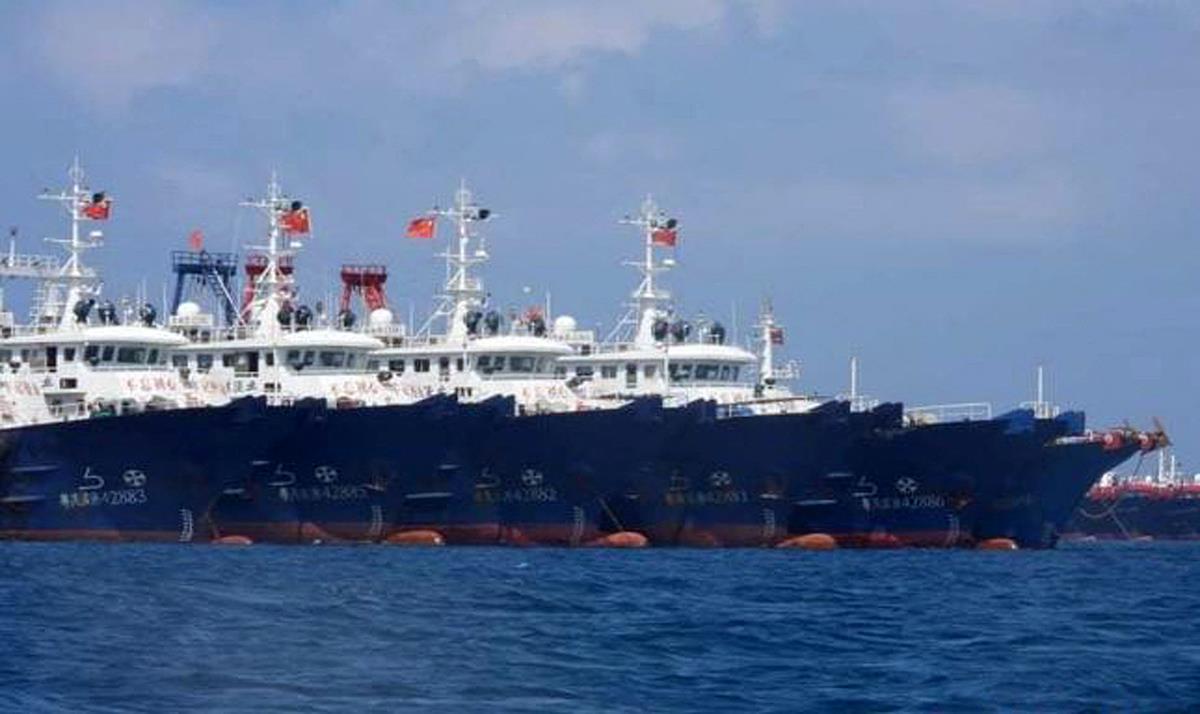
Chinese ship withdrawal from Philippines shows diplomacy works
(MENAFN- Asia Times) The number of Chinese vessels moored in Whitsun reef in the disputed South China Sea has gone down from 220 early last month to 32 as of Friday, a feat that shows that diplomacy, open and behind-the-scenes, works.
It also showed an evolving tact employed by Manila to deal with the maritime row that leverages domestic pressure and international censure to compel China to back down through face-saving talks.
The drawdown suggests that China responds to direct and private diplomacy. It also showed that applying pressure does not necessarily lead to a rupture so long as overall bilateral ties remain on a steady footing.
In fact, in the context of friendly relations, prolonging the crisis imposes more costs to Beijing than it does to Manila. Philippine Defense Secretary Delfin Lorenzana and Foreign Affairs Secretary Teodoro Locsin upped the ante to signal displeasure over the massing of Chinese fishing vessels in the reef.
Nonetheless, President Rodrigo Duterte set the ceiling by saying that the incident would not affect the overall trajectory of the relations and would not impede cooperation in pandemic response and economic recovery.
Despite not physically occupying Whitsun reef – not to mention its closer proximity to Chinese and Vietnamese outposts than to any feature administered by the Philippines – the country took an unusually strong stance on the heavy presence of Chinese ships there.

A map of the contested area.
China occupies two and Vietnam occupies four features in the Union Banks where the reef in contention is located. Officials in Manila alleged that some of the ships probably belong to a state-backed maritime militia.
Regardless, Lorenzana issued a strong statement demanding their immediate and unconditional withdrawal. The country's defense and foreign affairs departments traded barbs with the Chinese embassy. It was a marked display of acrimony against a climate of generally warm ties cultivated in the last four years.
This said, even at the most heated moments, communication channels remained open and high-level talks persisted. Philippine military officials discussed the issue with the Chinese defense attache in the country. President Duterte and Chinese Ambassador Huang Xilian likewise met in Malacanang, Manila's presidential palace.
Secretary Locsin and Chinese Foreign Minister Wang Yi held a Good Friday talk in Fujian. Indeed, the gradual reduction of Chinese ships in the contested reef shows that these talks eventually did deliver.
The Philippines took calculated risks to appeal to its own domestic audience, China and the international community. Manila gave ample latitude to its defense and foreign ministries to speak strongly on the issue to assuage Filipinos that their government is not compromising the country's territory or sovereign rights in return for Chinese investments or Covid-19 vaccines.
Furthermore, while engaging Beijing diplomatically, Manila kept the pressure on until it saw a significant decrease in the Chinese footprint in Whitsun reef. It also received Beijing's word that its ships do not intend to permanently stay in the reef.
Manila's sharp language and firm posturing garnered international support from allies, partners, and neighbors – openly and in private. Leveraging this strengthened the country's hands in talks.
The incident threw a spotlight on the need to accelerate the conclusion of a binding and effective Code of Conduct. With the Philippines as ASEAN-China country coordinator and Brunei, a fellow South China Sea claimant, as rotating ASEAN Chair this year, there is hope for renewed momentum in COC negotiations.
Manila's moves also gave it more space to reconfigure its septuagenarian security alliance with the United States. Highlighting China's possible gray zone ploy helped Manila get reassurances from Washington that an attack on its government's ships would trigger America's Mutual Defense Treaty obligations to its former colony.
Extending the treaty's coverage to include civilian fishing or commercial vessels would raise the stakes for Chinese interference in Filipino marine economic activities in the semi-enclosed sea.
With Washington keen in revitalizing its alliances as a key pillar in its great power rivalry with China, Manila can drive hard bargains to strengthen its claims and position in choppy waters. This is especially so as the fate of a two-decade-old military pact, the Visiting Forces Agreement, may be decided upon by next month.

Satellite imagery shows Chinese vessels anchored at the Whitsun Reef. Credit: AFP/©2021 Maxar Technologies
In the Whitsun reef debacle, Manila showed resolve, welcomed international support, but remained open to dialogue. It also set an immediate and low-hanging target, namely the withdrawal of Chinese ships from the area of concern.
Such moves reflect regional responses to China's growing incursions in the South China Sea. Vietnam, Malaysia and Indonesia do not shy away from engaging Beijing in a stand-off, if need be, but remain committed to resolving a crisis peacefully through diplomacy.
While Manila did not send in ships to confront the Chinese vessels berthed in Whitsun reef, it did engage Beijing in a verbal public spat while pursuing talks.
The Chinese vessels may have dispersed to other reefs in the contested sea and it remains to be seen whether they would congregate again in large numbers to alarm Manila. China's own unilateral fishing ban in the South China Sea will begin in early May so fishing activities – weather permitting – are likely to step up before the curtain drops.
This goes without saying that if those ships continue to loiter past that time, then they are not what they are said to be.
Indeed, the drop in Chinese ships anchored in Whitsun reef show that diplomacy, criticisms aside, delivers – if only it is given full play. But as the experience of its other neighbors shows, this will be one of many more challenges to come that the country should prepare for.
Lucio Blanco Pitlo III is a research fellow at the Asia-Pacific Pathways to Progress Foundation, fellow at the University of the Philippines Korea Research Centre, a lecturer at the Chinese Studies Programme at Ateneo de Manila University and contributing editor (Reviews) for the Asian Politics & Policy Journal.

Legal Disclaimer:
MENAFN provides the
information “as is” without warranty of any kind. We do not accept
any responsibility or liability for the accuracy, content, images,
videos, licenses, completeness, legality, or reliability of the information
contained in this article. If you have any complaints or copyright
issues related to this article, kindly contact the provider above.

















Comments
No comment